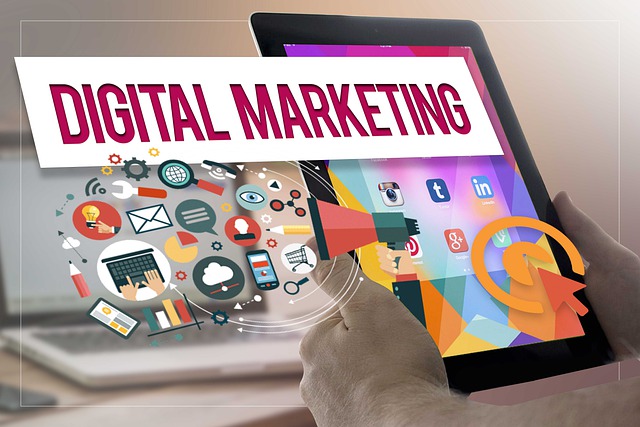In today’s digital world, having an online presence is essential. Digital marketing uses a range of online strategies to attract and engage customers. These can include social media ads, email marketing, and SEO—all of which point to one main destination: a business website. This website is where potential customers go to learn more and take action. Without a website, many digital marketing efforts lose impact, making it difficult to turn interested visitors into loyal customers. So, why is a website so important in digital marketing? Let’s explore the reasons.
The Role of a Website in Establishing Online Presence
When consumers research brands or products online, they’re looking for credibility. A professional website serves as a digital “business card,” showcasing a company’s values, offerings, and expertise. Unlike social media, which is often informal and fast-paced, a website provides a more controlled space where businesses can establish their brand voice and authority. By hosting valuable content like blog posts, case studies, and company insights, a website helps reinforce brand trust and reliability.
Enhancing Professionalism in the Market
A website also distinguishes businesses from those relying solely on social media profiles or third-party platforms. For customers, having a website shows that a company has invested in creating a professional online space, making it appear more credible and established. In digital marketing, this professionalism can be a deciding factor for consumers when comparing similar brands.

A Website as the Hub of Digital Marketing
Centralized Information Source
In digital marketing, consistency is key. A website allows businesses to control all the information customers see about their brand in one place. Unlike social media, where content is scattered and time-sensitive, a website can serve as a “home base” for accurate information about products, services, and policies. This centralized source minimizes the risk of misinformation and provides customers with reliable data.
Linking Digital Marketing Channels
Digital marketing is most effective when different channels work together. A website connects various marketing channels, including social media, email, and paid ads, in a cohesive ecosystem. For instance, ads can direct users to a landing page, email newsletters can link to product pages, and social media profiles can invite followers to explore blog content. This interconnected approach strengthens brand visibility and improves conversion opportunities.
Driving Traffic and Conversions with a Website
SEO and Organic Traffic Generation
Search Engine Optimization (SEO) is a core component of digital marketing that relies heavily on websites. A well-optimized website ranks higher on search engines like Google, making it easier for potential customers to find the business when searching for related products or services. The website structure, keywords, and content directly affect SEO, helping bring in organic traffic that can lead to high-quality leads without additional advertising costs.
Conversion Optimization on Websites
Websites offer the tools needed to guide visitors toward specific actions, whether signing up for a newsletter or making a purchase. With dedicated landing pages, calls-to-action (CTAs), and optimized user experiences, websites make it easier to convert traffic into leads or customers. Analyzing customer behavior on a website through tools like heatmaps and analytics further allows businesses to make data-driven adjustments to boost conversion rates.

Understanding Customer Behavior Through Analytics
Access to Visitor Data and Insights
One of the greatest advantages of a website in digital marketing is the wealth of data it provides. Analytics platforms like Google Analytics reveal detailed insights into visitor demographics, behavior, and traffic sources. By understanding where visitors come from and what they’re interested in, businesses can refine their digital marketing strategies to align with audience preferences, improving relevance and engagement.
Personalizing the Customer Experience
With access to website data, businesses can personalize content to enhance customer experiences. For example, a visitor who frequently views a certain product page may be shown relevant content or special offers. This level of personalization helps improve user satisfaction, encourages return visits, and fosters stronger connections with customers.
Building and Nurturing Customer Relationships
Email Marketing Integration
A website simplifies the process of collecting email leads, often through forms or gated content. These leads are vital for digital marketing, especially for email campaigns that nurture relationships over time. By targeting email subscribers with content relevant to their interests, businesses can effectively stay top-of-mind and increase the chances of future purchases.
Customer Support and Communication
Websites can feature customer support tools like live chat, chatbots, and contact forms, allowing real-time interaction and assistance. These features not only enhance customer satisfaction but also reduce barriers to conversion by addressing visitor questions immediately. Additionally, FAQ sections and self-help resources on a website provide customers with easy access to common solutions.

Facilitating Direct Sales and E-Commerce
Online Store Functionality
For businesses that sell products, a website with e-commerce functionality is essential. An online store integrated into a website allows customers to shop anytime and from anywhere, offering unparalleled convenience. This direct sales channel complements digital marketing efforts, making it easy for visitors directed from ads or social media to convert into paying customers immediately.
Payment Gateways and Security
Secure payment gateways on websites are crucial for fostering trust with customers, especially in online shopping. Websites with SSL certificates and secure payment options provide peace of mind for users, encouraging them to complete transactions. Businesses can offer multiple payment methods, making it more convenient for users to make purchases.
Optimizing Marketing Costs with a Website
Cost-Effectiveness Compared to Traditional Marketing
A website allows businesses to leverage digital marketing at a lower cost compared to traditional advertising methods. Digital campaigns often have a lower investment threshold, and they can be optimized in real-time for better ROI. By driving traffic to their website, businesses can reduce expenses associated with third-party platforms while focusing on direct customer engagement.
Long-Term Benefits of Website Investment
While a website requires an initial investment, its long-term benefits are substantial. Unlike ads that run temporarily, a well-optimized website continues to attract organic traffic and generate leads over time. When maintained properly, a website serves as a lasting asset that supports ongoing digital marketing efforts.

Gaining a Competitive Edge with a Website
Differentiating from Competitors Without Websites
In competitive markets, having a website can set businesses apart from those without one. Consumers often perceive brands with professional websites as more trustworthy and legitimate. For digital marketing, this edge is crucial because it helps attract clients who prioritize transparency and professionalism.
Strengthening Brand Identity
A website is an ideal platform for reinforcing brand identity across various digital channels. With cohesive branding elements like logos, color schemes, and messaging, a website strengthens the business’s image and helps it stand out. This consistency can improve brand recall, making it more likely that customers will return.
Enhancing Accessibility and Availability for Global Audiences
Reaching International Customers
One of the biggest advantages of a website is its global accessibility. With proper SEO strategies, a business website can reach audiences worldwide, expanding its market far beyond local boundaries. Multi-language support and localization efforts can further improve accessibility, allowing businesses to connect with a diverse range of customers.
24/7 Availability for Customers
A website is available 24/7, which means customers can access information and make purchases at any time. This continuous availability is a significant advantage, as it caters to customers across different time zones, supporting a seamless experience for international and local customers alike.
From where to get website development services
Finding the right website development services is essential for building a strong online presence. Here are some of the best options to consider when searching for professional website development:
1. Freelance Platforms
Upwork: A popular platform for hiring freelancers from all over the world. You can find web developers with diverse skill sets and experience levels.
Fiverr: Known for budget-friendly options, Fiverr has web developers offering services at various price points.
Freelancer.com: Similar to Upwork, this platform allows you to post projects and review bids from web developers, often allowing for negotiation.
2. Web Development Company
Local Agencies: Check for web development Company in your area. Many businesses prefer local agencies as they offer face-to-face meetings and personalized support.
Like :
Fara IT Limited
One of the largest software and web development company in Bangladesh, Fara IT Limited offers a wide range of services, including custom web development, mobile app development, and enterprise solutions. They work with clients globally and have a strong reputation for delivering high-quality projects.
Accord Tech Solutions
Known for its affordable and effective web solutions, Accord Tech Solutions specializes in website design, e-commerce development, and digital marketing services. They cater to businesses of all sizes and are particularly popular among small and medium-sized enterprises in Bangladesh.
TechnoBD
With over 15 years of experience, TechnoBD provides professional web development, mobile app development, and hosting services. They have a robust portfolio, catering to both local and international clients, and are known for reliable and timely project delivery.

A website is the foundation of any successful digital marketing strategy. It not only acts as a centralized hub for information and customer engagement but also enhances a brand’s credibility, reach, and ability to convert leads into loyal customers. Investing in a website allows businesses to maximize the impact of their digital marketing efforts, offering a cohesive and professional experien







